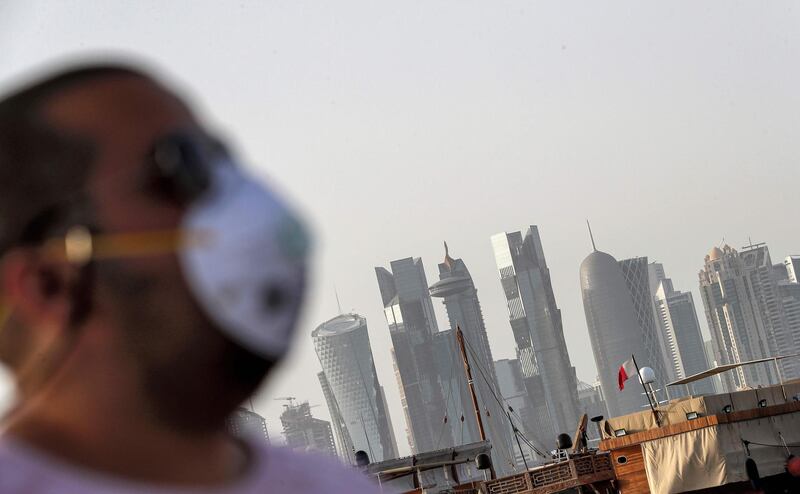With well over 1,000 new cases of coronavirus a day despite strict measures to suppress the spread of the disease, Qatar has become the world’s hardest hit country by population size.
The official toll puts 1.3 per cent of the entire population of 2.75 million people in the tiny peninsular nation as having the virus with 35,606 confirmed cases. Despite the high toll, just 15 people have been recorded as dying of Covid-19.
However, the government was forced to deny reports that Covid-19 is running rampant in the country’s jails. Human Rights Watch said that six non-Qatari detainees “described a deterioration in prison conditions" at Doha's Central Prison.
"They said that the prison authorities also further restricted prisoners' limited access to basic medical care," it added describing the situation as "an apparent outbreak".
The campaign group has warned that cramped, unsanitary conditions in prisons worldwide and in worker accommodation in the Gulf make social distancing impossible and could accelerate the spread of the coronavirus.
Qatar’s Government Communications Office refuted the report but confirmed 12 cases of Covid-19 in a jails. It added that two inmates were acutely ill, but none had succumbed to the respiratory condition.
The government said the report was "based on unfounded rumours and speculation from a small number of unverified interviews".
"Two cases reached the acute phase of the illness and were transferred to a designated off-site treatment centre where they received first-class healthcare before being transferred back to the Central Prison once fully recovered."
Masks have been mandatory in public places in Qatar since Sunday in an effort to stem the spread of the virus.
Violators of the new rules will face up to three years in jail and fines of as much as $55,000, the world's toughest penalties for failing to wear a face covering.
Anyone leaving their home will also be required to install a contact tracing app on their phones from Friday, the Qatar News Agency reported.
Mosques, along with schools, malls, and restaurants remain closed in Qatar to prevent the disease's spread.
Michael Page, HRW's deputy Middle East director, called for the release of "vulnerable prisoners such as older people and those held for low level or non-violent offences".
Countries around the world have temporarily furloughed tens of thousands of inmates, releasing them to prevent the spread of the virus in prisons.
In April, more than 500 prisoners in Qatar received official pardons in response to the coronavirus crisis.







